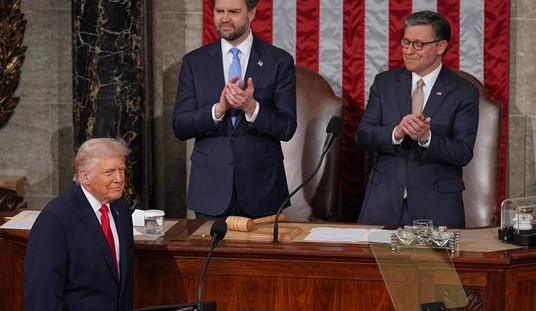The United States has become quite divided over the past decade. Political discourse has become increasingly tense. In some cases, the nation has seen political violence play out in the streets and even the U.S. Capitol building.
In many ways, social media has only exacerbated the situation and has become a cesspool of hateful arguments. Amid mostly unfounded fears of a second civil war, people on both sides have called for a “national divorce,” as a peaceful solution to the ever-rising tensions between Americans on both the left and the right.
A national divorce would involve splitting the United States of America into two nations: One that is more conservative and the other more liberal. I’ll refer to these two nations as the Democratic States of American (DSA) and the Republican States of America (RSA) just for fun.
In this way, those positing this idea seek to have a situation in which people can live among and commune with only those whose political and cultural beliefs line up with their own. Since conservatives and leftists no longer wish to live among each other and the animus is at a fever pitch, why not just sue for divorce on a national scale?
My friend Jesse Kelly proposed this idea in 2018 in a piece written for The Federalist and also on his show on The First Network.
Progressive comedienne Sarah Silverman recently proffered a similar idea in a podcast episode.
Maybe we should break up. pic.twitter.com/AbxLes3XjL
— Sarah Silverman (@SarahKSilverman) September 13, 2021
This solution seems to have some appeal – especially among libertarians and anarchists who would love to see the federal government dissolve.
But the issue with this idea is that it is highly unlikely that it could ever happen in real life.
For starters, the logistics would be impossible. Today’s America is not like the nation of the 1860s, where the north and south were at odds. Political differences aren’t as geographical as they were 150 years ago. There are plenty of leftists living in red states like Texas and plenty of conservatives living in blue states like California.
Indeed, over 5 million Californians are registered Republicans. It does not seem realistic to expect each of these individuals to be able to pick up and move to Texas or Mississippi. Conversely, there are millions of Democrats living in Texas.
How would a national divorce work with people with conflicting views living in the same areas? Would Democratic-leaning individuals be forced to move to the DSA or vice versa?
In a piece for the New York Post, author Karol Markowicz pointed out that COVID restrictions and other policy differences are not the only things dividing the nation. She noted that “electorates change, issues of importance change, and demographics change.”
She continued:
Kids don’t always follow their parents’ ideology. Whole counties and states sometimes switch sides in elections and then switch back again. Michigan, Pennsylvania, Wisconsin went for Obama in 2012, Trump in 2016, Biden in 2020. Who gets them in the divorce? Would we constantly have to change boundaries?
Another issue would be the terms of this divorce. What would having these two new Americas living side by side look like? What trade agreements might be ironed out? Would the two new countries be considered allies? Moreover, how would the United States’ wealth be allocated?
The military would also be a point of contention. Would soldiers be housed in the America that aligns with their political beliefs? What plan could be in place to determine how critical military equipment is disseminated? This issue alone could be quite tricky especially if the right and left don’t trust each other. Perhaps an international body like the United Nations could help to broker the agreement. But even that idea is flawed because no conservative – myself included – would be amenable to allowing the U.N. to be involved.
Speaking of the U.S., there is also the issue of foreign influence. Our enemies would be sure to figure out how they could take advantage of this national divorce in a way that could be worse for us. Indeed, what if – God forbid – one, or more, enemy nations decided to launch an attack against the two Americas? It seems likely that they would temporarily unite to repel the threat – but can we take this for granted?
Also, if we think China is already garnering more influence in the U.S., how much worse will this problem get if there are two separate countries to exploit? It seems more likely that such a scenario would benefit them more than it would benefit the American people.
The last point I will make is that I am not convinced that America is actually as divided as we might think. The problem is that what we see in the media, the government, and on social media presents a view of the nation that might not be entirely accurate.
This isn’t to say that American isn’t divided – it certainly is. But the talking heads we see screaming at each other on cable news isn’t reflective of what most Americans are doing when dealing with political differences. Moreover, as awful as social media can be, it is not real life.
But when we’re only exposed to vitriol online and in the media, it is easy to lost sight of the fact that most people can discuss political differences without hating one another. Even here in Austin – an incredibly blue city – I’ve seen conservatives and leftists having civil disagreements while also seeking areas of common ground.
Most normal folks do not hate people just for disagreeing with them politically. In fact, people on both sides are tired of the constant outrage being pushed by the intelligentsia. So in light of this, there isn’t a valid reason for a national divorce – unless we are talking about divorcing ourselves from the fringes on both sides who carry the loudest microphones.













